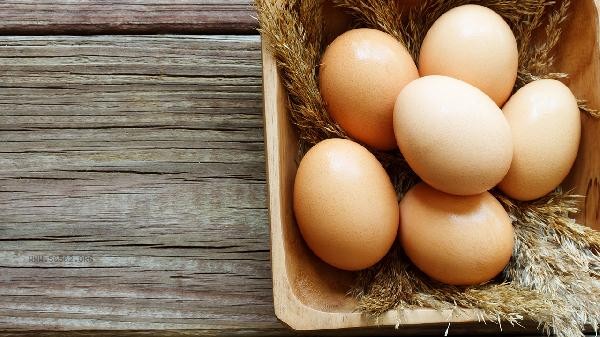The best way to store eggs is to refrigerate them, keep them dry and clean, avoid shaking, place them upside down, keep them away from odors, and control the storage time.

1. refrigerated storage
Eggs stored in a refrigerator at around 4 ℃ can slow down bacterial growth, and the activity of microorganisms such as Salmonella on the surface of the eggshell decreases in low-temperature environments. When refrigerating, it is recommended to put the eggs in a dedicated egg box or fresh-keeping box to avoid direct contact with other foods. After being taken out of the refrigerator, it should be consumed as soon as possible to prevent the temperature difference from causing condensation of water vapor on the surface of the eggshell and accelerating deterioration.
2. Keep dry and clean
Eggs have a natural stratum corneum on their surface, which can prevent bacterial invasion. Before storage, the surface dirt can be gently wiped with a dry cloth, but washing with water is prohibited to avoid damaging the protective film. If the eggshell has ruptured, it should be used immediately and cannot be stored any longer. A humid environment is prone to mold growth, and it is recommended to keep the humidity of the storage environment below 70%.
3. Avoid shaking
Severe shaking can cause the internal chamber of the egg to shift or the yolk membrane to rupture, accelerating spoilage. During transportation or storage, collision should be avoided, and a stable compartment should be chosen for placement in household refrigerators as much as possible. Bulk eggs can be buffered with rice husk or foam pad to reduce the impact of vibration during transportation.

4. Place the egg chamber with the big head facing upwards.
The egg chamber is located at the blunt end and placed upwards to suspend the yolk in the center, avoiding adhesion with the inner membrane of the eggshell. When stored for a long time, this position can delay the deterioration of the egg yolk and reduce the evaporation of water inside the egg through the pores. When using an egg tray for storage, pay attention to checking the direction to ensure that each egg is upright and stable.
5. Control storage time
Eggs have a shelf life of about 15 days at room temperature, which can be extended to 30-45 days when refrigerated. Even if the appearance is normal after the expiration date, the protein may have decomposed and produced harmful substances. When purchasing, prioritize selecting eggs with a closer production date and consume them within the shelf life indicated on the packaging.

In addition to proper storage, it is recommended to choose clean eggs with no cracks or fecal residue on the surface when purchasing. During the hot summer season, it is essential to refrigerate and store the food. Before cooking, check for any loose yellow or unusual odors. Eggs should not be placed together with strong smelling ingredients such as onions, ginger, and garlic to avoid the eggshell absorbing odors. Boiled eggs should be refrigerated for no more than 3 days, and cooked products such as fried eggs are recommended to be consumed on the same day. Regularly clean the refrigerator egg compartment to prevent cross contamination from affecting the quality of eggs.








Comments (0)
Leave a Comment
No comments yet
Be the first to share your thoughts!